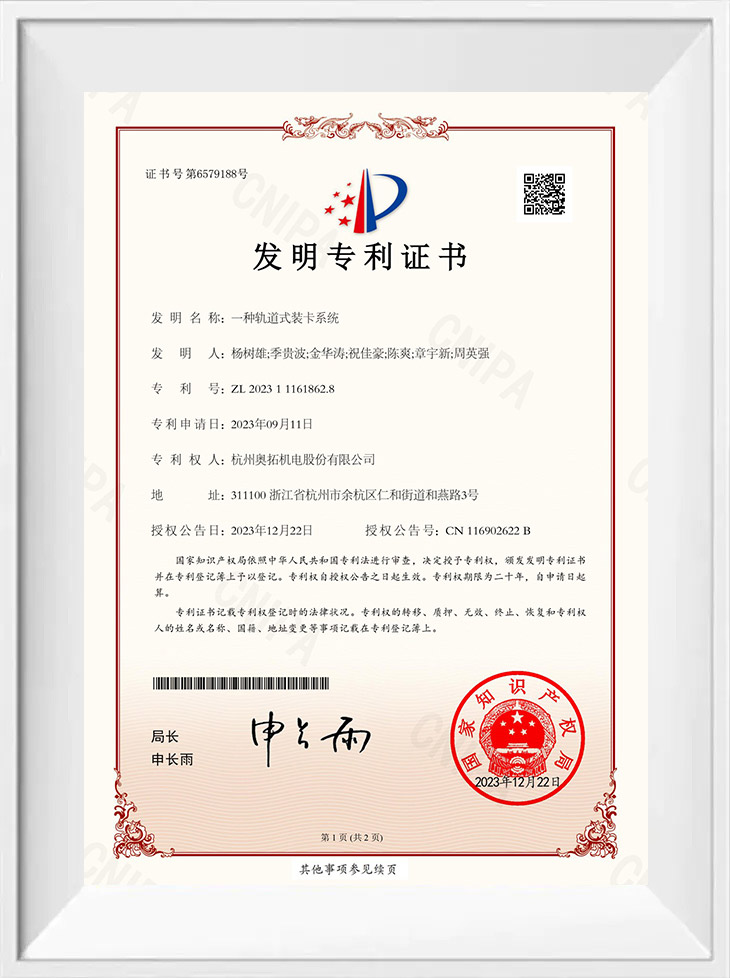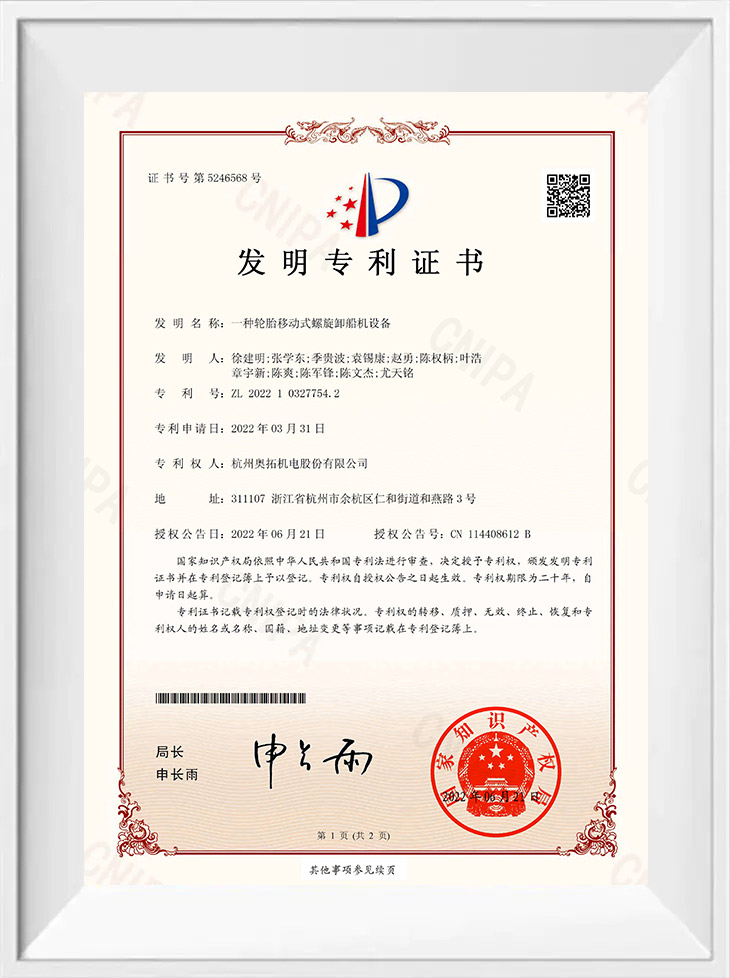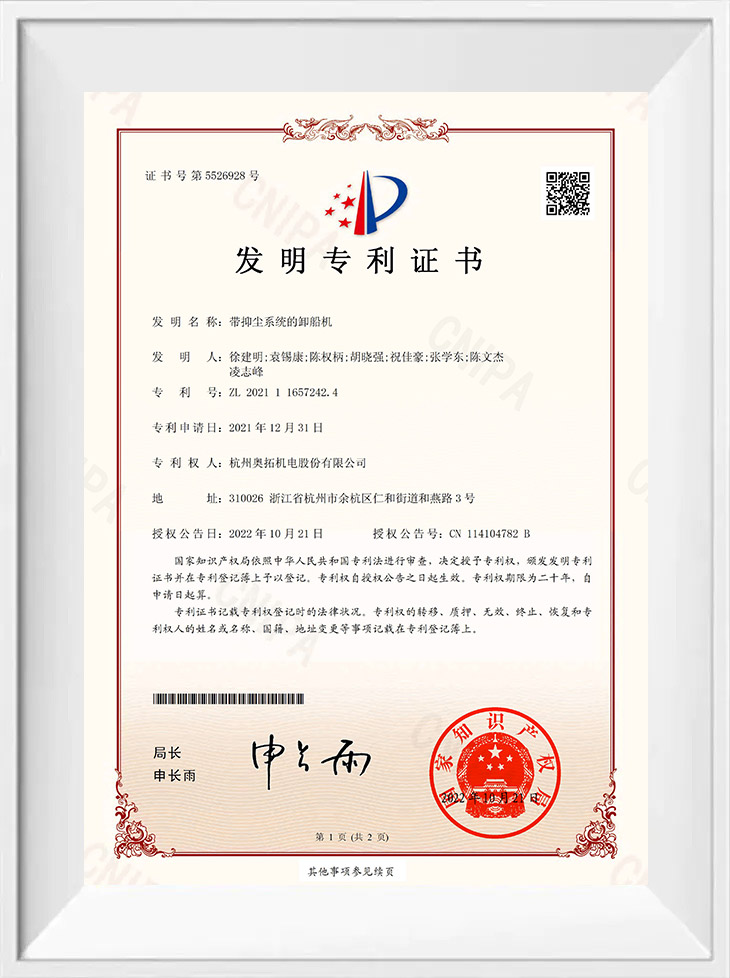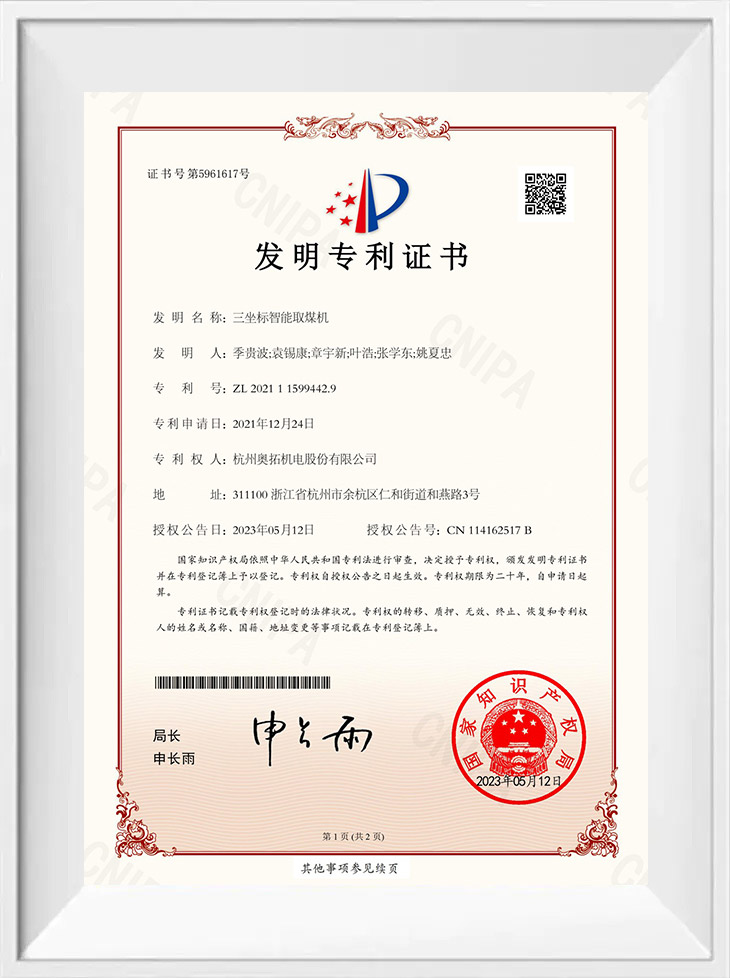-

Professionalism
-

Quality
-

One stop solution



News Center
News Updates
-
Admin 2026-01-29
Great News! AOTUO Secures Recognition as First-of-its-Kind Equipment in China!
Recently, the "Cement Clinker (Coal) Screw Ship Unloader and Supporting Transfer System," independently developed by HangZhou Aotuo Mechanical And Ele...Read More -
Admin 2026-01-29
What is the Optimal TPH Rating for a grain ship loader to Minimize Vessel Demurrage Costs?
In the high-stakes environment of global agricultural logistics, the efficiency of a grain ship loader is the primary factor determining the profitabi...Read More -
Admin 2026-01-22
What are the Latest Dust Suppression Technologies Integrated into Modern Bulk Ship Loader Designs to Meet Environmental Standards?
In the global maritime logistics sector, the demand for sustainable port operations has never been higher. As environmental regulations tighten, the e...Read More -
Admin 2026-01-16
How a High-Capacity Screw Ship Unloader Optimizes Energy Consumption Per Ton for Bulk Cargo Terminals
In the competitive landscape of modern port logistics, operational efficiency is defined by the balance between throughput speed and energy expenditur...Read More -
Admin 2026-01-08
How the 2026 International Grain Code Amendments Impact Your Choice of Grain Ship Loader
As we enter 2026, the maritime and port logistics industry faces a pivotal shift with the latest amendments to the International Code for the Safe Car...Read More
How Automated Screw Ship Unloaders Reduce Coal Dust Emissions in Ports
Automated screw coal unloaders (automated screw coal unloader for bulk cargo ships) can significantly reduce coal dust emissions (dust free screw type ship unloader for coal terminals) when unloading coal at ports, thereby improving the port environment and increasing operating efficiency. This equipment achieves an efficient and low-dust unloading process through its unique screw conveying mechanism (screw mechanism) and closed design.
1. Closed design and low dust emission
The automated screw ship unloader adopts a fully enclosed conveying system. From the ship deck to the dock storage area, the entire unloading process is carried out in a closed space, effectively preventing the escape of coal dust. This design not only reduces dust pollution in the air, but also avoids the harm of coal dust to the surrounding environment and the health of operators. For example, Siwertell screw unloaders achieve dust-free operation from the ship to the storage area through a fully enclosed conveying system.
2. Efficient unloading and low energy consumption
Automated screw unloaders are usually equipped with efficient screw conveyors, which can continuously unload coal from ships to docks. This type of equipment has a relatively simple structure, is easy to maintain, and has low energy consumption, making it suitable for large-scale coal transportation needs. In addition, since its screw conveying mechanism can unload layer by layer, it reduces the accumulation of coal in the cabin, thereby reducing dust generation.
3. Environmental protection and energy efficiency
Automated screw unloaders are usually classified as "low emission" and "energy efficient" equipment, which meets the requirements of modern ports for environmental protection and sustainable development. For example, some studies have shown that the use of screw unloaders can reduce dust emissions in ports to a minimum level. At the same time, the energy consumption of this equipment is relatively low, which helps to reduce carbon emissions.
4. Strong adaptability and convenient operation
Automated screw unloaders are suitable for various types of dry bulk cargoes, including coal, cement, mineral powder, etc., and are particularly suitable for handling materials with good fluidity and small particle size. It has a compact structure and is easy to operate, making it suitable for use in different environments such as ports and docks. In addition, some models also have mobile functions, which can flexibly respond to the needs of different ports.
5. Reduce negative impact on the environment
Compared with traditional grab-type ship unloaders, automated screw ship unloaders have obvious advantages in reducing dust emissions. Grab-type ship unloaders will generate a lot of dust during the unloading process, while screw ship unloaders effectively control the generation and diffusion of dust through closed design and screw conveying mechanism
. In addition, the operation noise of screw ship unloaders is low, which further improves the working environment of the port.
6. Compliance with international environmental standards
Automated screw ship unloaders usually comply with international environmental standards, such as RoHS, ISO, CE, etc., to ensure their compliance in environmental protection. These standards require that the equipment minimizes the impact on the environment, including dust emissions and energy consumption, during the design and manufacturing process. Therefore, the automated screw ship unloader not only meets the environmental protection requirements in technology, but also demonstrates good environmental performance in practical applications.
Automated screw ship unloaders (low emission screw type coal ship unloader for ports) have become an important solution to reduce coal dust emissions in ports through their closed design, efficient unloading capacity, low energy consumption and environmental protection characteristics. It not only improves unloading efficiency, but also significantly reduces dust pollution, making a positive contribution to the sustainable development of the port.

 EN
EN English
English 中文简体
中文简体 Français
Français










